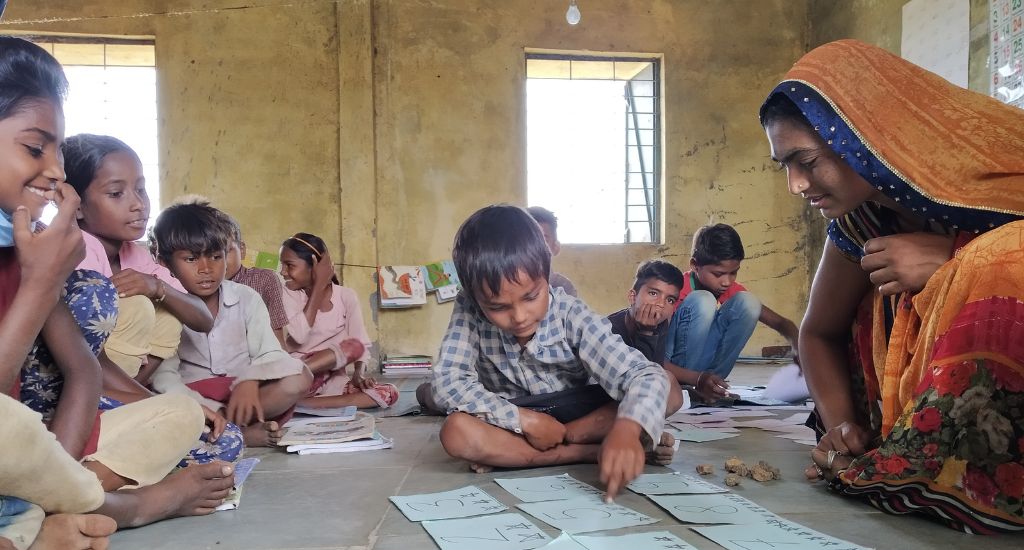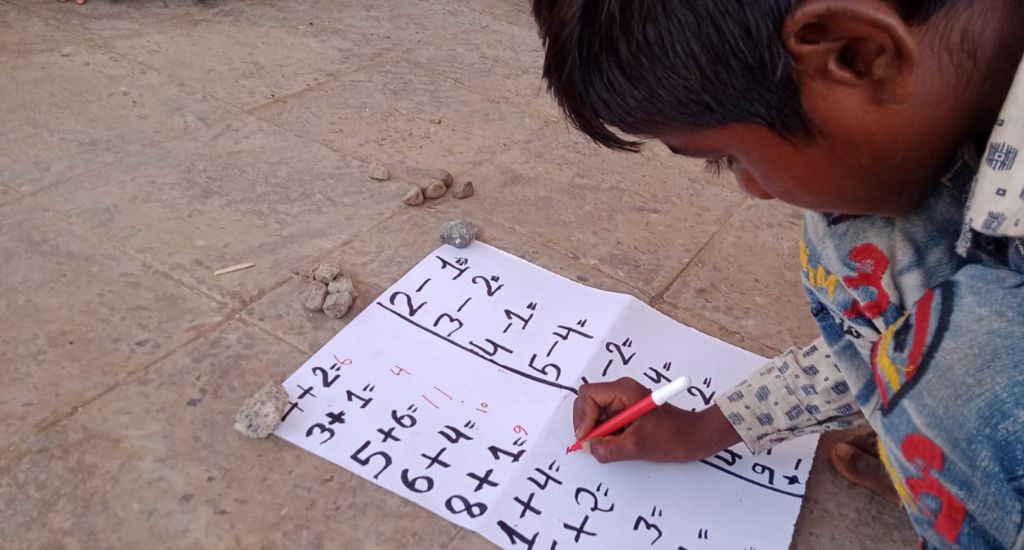
Community transforms education in rural MP
Community-driven education initiatives spearheaded by Transform Rural India show a way and bring hope to remote rural locations in the country.

Community-driven education initiatives spearheaded by Transform Rural India show a way and bring hope to remote rural locations in the country.
Seven years, 2,535 schools, 1,844 villages, three states – an education revolution is happening, and how.
In 2017, when the education initiatives of Transform Rural India (TRI) with its Education Sector Council (ESC) partner organisations began to take root in rural India, the prevailing sentiment among teachers, government officials and community members was one of doubt and disillusionment. TRI’s ESC is a collaboration with education nonprofits such as Aide et action, Eklavya, Prajayatna, NEG-FIRE, Samavesh, Vikramshila and Vidya Bhawan.
The communities in villages had seen numerous projects come and go, each promising positive changes but ultimately leaving behind a trail of disappointment, with the activities coming to a halt with the end of the project. Lack of ownership and accountability by communities meant that the results could not be sustained. Teachers blamed parents for their children’s lack of interest in school, while guardians accused teachers of negligence.

The result was a disheartening cycle of blame and resentment that slowed the progress in these remote communities. However, over the years, a gradual shift has begun to take place, offering a glimmer of hope for the future.
TRI has started working in 2,535 schools in 1,844 villages of 18 blocks in three states.
Also Read: Involving rural parents in children’s education
In many of the villages where educational interventions have been introduced, there is a growing sense of optimism. Illiterate women, driven by their strong will and desire to improve their communities, have taken it upon themselves to establish learning centres and organise balsabhas or child-focused community meetings. Some of these women have even acquired new skills solely to engage children in learning, showcasing their newfound commitment to education.
A significant transformation is visible in school management committee (SMC) meetings, where parents actively participate in discussions about their children’s education. This shift is well-documented in a study undertaken by the Development Intelligence Unit (DIU) that highlights the impact of collective decision-making and collaborative actions. This sense of collective responsibility and community involvement has breathed new life into education and related initiatives.

The study conducted by DIU, which focused on children aged 6 to 14 years in rural communities across 20 states in India, revealed that 82 percent of girl child’s parents and 78 percent of boy’s parents expressed a desire to educate their children up to graduation and above. As many as 84 percent of the parents also stated that they regularly attend parent-teacher meetings. In order to fulfill these desires, TRI works with the community as an equal partner.
Also Read: 80% of rural parents wish to see their kids finish college
The changes are tangible and have redefined the meaning of words like “collective ethos” and “change-makers.” The visioning exercises have ignited an emotional connection and a sense of purpose among the community members. They realise that they hold the power to effect change and that their actions can make a significant difference in the lives of the children and their community.
While these transformations are undoubtedly encouraging, they are not the final destination. Instead they are milestones on the path to lasting change. These small victories indeed fuel the determination of those working on the ground, reaffirming their belief that they are moving in the right direction.
A heartening example of this commitment is the continued use of wall paintings as learning tools. If anyone visits Jhabua or Alirajpur in Madhya Pradesh today, they will likely come across “knowledge trees” and “knowledge walls” adorning houses and tree trunks. These painted creations continue to be protected and used as tools for education.

These paintings created in 2018-19 are still being protected and used by community members to teach foundational language skills to children. In some villages in Thandla and Petlawad in Jhabua district of Madhya Pradesh, where old houses have been demolished and rebuilt under the Pradhan Mantri Awas Yojana, the community members chose to keep the learning walls intact. This is a testament to the enduring impact of these initiatives.
In Vikrampur village of Khategaon tehsil in Dewas district of Madhya Pradesh one inspiring woman faced ostracisation for teaching children from a specific community. Despite her expulsion, she remained dedicated to her mission. Gradually, a few members of self-help groups (SHGs) were moved by her courage and dedication and approached the community on her behalf.
Also Read: Teacher inspires school enrolment through films in UP village
Eventually, she was not only accepted but also recognised for her efforts. The women fought a patriarchal mindset and social hierarchy to bring her back in the social space.
Women in other villages have taken their learning centres to the fields, where they protect crops from wild animals, further showcasing their commitment to education.
“Learning centres have transformed the students in many ways. After school, most students head first to the learning centre to finish their homework and then go home,” says Seeta Munia who is one of the badlav (change) didi.
These stories are a testament to their resilience and determination. Their actions have not only changed the lives of the children they teach but have also inspired others to join the cause. This has also of course brought a sense of unity and empowerment within the community.
When a community trusts, supports and actively participates in educational initiatives, they can leave a lasting impact. These examples call out to us, urging us to be a part of the change and witness the transformation that can unfold.

“Balsabhas are organised every Saturday in schools where children showcase their art work and discuss school and learning-related matters,” says badlav didi Lunki Meda.
Also Read: An educator and his rural school with a difference
TRI’s journey of transforming education in Indian villages has been marked by challenges, doubts and obstacles. However, the gradual shift in mindset and the emergence of community-driven initiatives have brought hope and change to these once-disconnected communities. The stories of dedicated women and the enduring impact of educational interventions serve as inspirations for others to join the cause.
The lead image at the top shows a group of children with their books. (Photo courtesy TRI)
Javed Siddiqui is a Senior Practitioner at Transform Rural India.